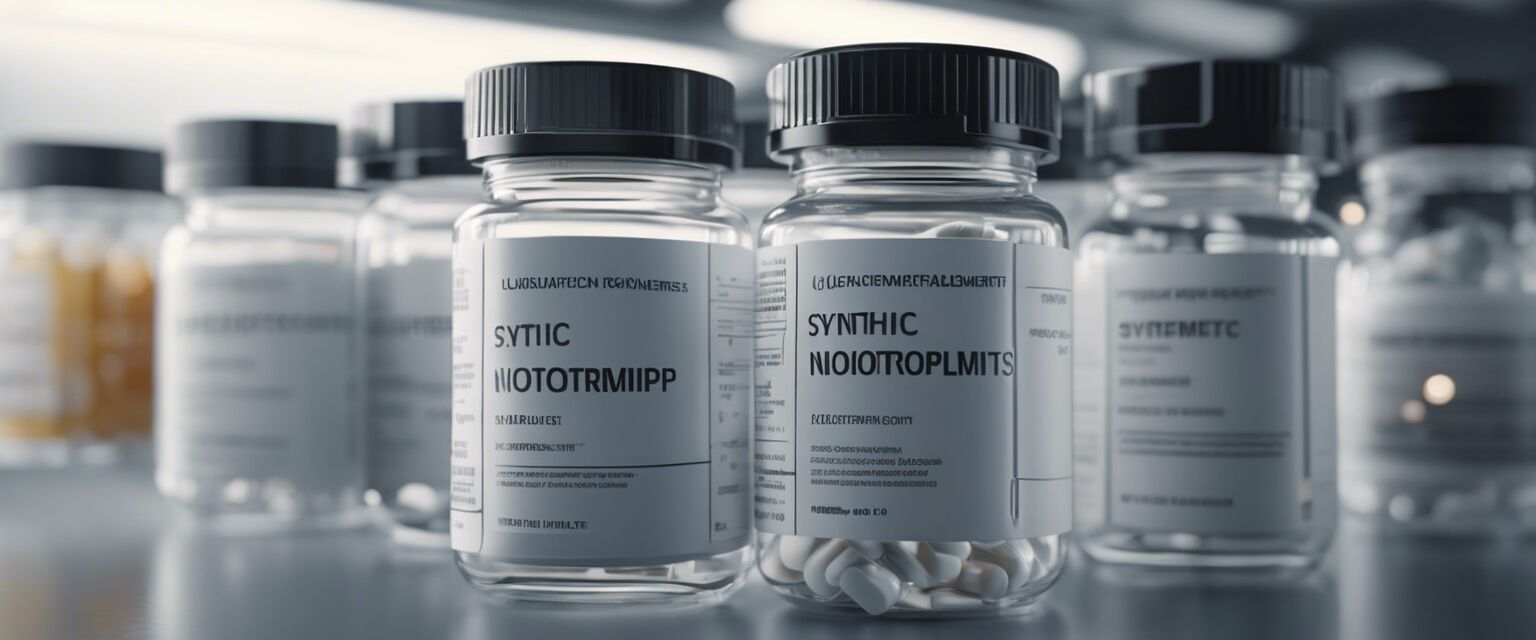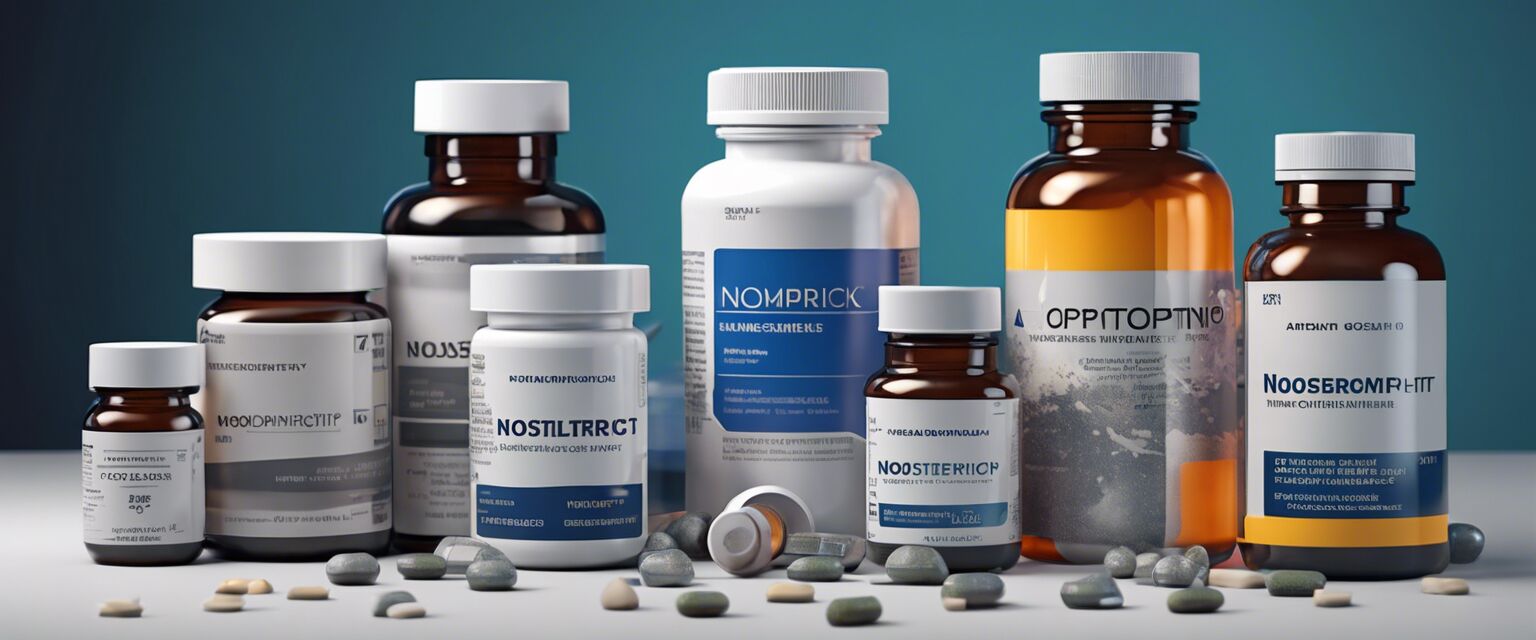
Natural vs. Synthetic Nootropic Supplements
Key Takeaways
- Natural nootropics are derived from plants and may offer a more holistic approach.
- Synthetic nootropics are manufactured and can provide targeted cognitive enhancement.
- Both categories have unique pros and cons that should be carefully considered.
- Understanding individual goals and body responses is essential in choosing the right supplement.
Nootropic supplements have gained immense popularity, especially among athletes looking to enhance focus, clarity, and overall cognitive performance. In the realm of nootropics, there are two primary categories to consider: natural and synthetic. This article delves into the key differences between these two types, examining their benefits and drawbacks to help you make informed decisions about your cognitive enhancement journey.
Understanding nootropic supplements
Nootropics are substances that are believed to improve cognitive function, particularly executive functions, memory, creativity, or motivation in healthy individuals. They can be found in various forms, including powders, capsules, and drinks. While both natural and synthetic options exist, they differ significantly in their origins, effectiveness, and safety profiles.
Natural nootropic supplements
Natural nootropics are derived from plants, herbs, and other natural sources. They have been used for centuries in traditional medicine to enhance cognitive abilities and overall well-being. Here are some commonly used natural nootropics:
- Ginkgo Biloba - Often used to improve memory and focus.
- Bacopa Monnieri - Used for enhancing memory and learning capabilities.
- Rhodiola Rosea - Known for reducing fatigue and improving mental performance.
- Panax Ginseng - Believed to boost energy levels and mental clarity.
Pros and cons of natural nootropics
Pros
- Derived from natural sources, potentially leading to fewer side effects.
- May promote overall brain health and well-being.
- Often have a slower onset of action, allowing for a balanced effect.
Cons
- Effects may vary significantly from person to person.
- Longer time needed to experience benefits compared to synthetic options.
- May not be as potent as synthetic alternatives.
Synthetic nootropic supplements
Synthetic nootropics are man-made compounds designed to enhance cognitive performance more aggressively. They often target specific neurotransmitter systems in the brain for heightened effects. Here are a few popular synthetic nootropics:
- Modafinil - Commonly prescribed for sleep disorders, it enhances alertness and focus.
- Noopept - Believed to improve memory and learning and also provide neuroprotective benefits.
- Racetam family - Includes Aniracetam and Piracetam, known for their cognitive-enhancing properties.
- Alpha-GPC - Choline source that supports brain health and may improve memory.
Pros and cons of synthetic nootropics
Pros
- Usually exhibit rapid effects, often within hours.
- Can be precisely dosed for consistent performance.
- May target specific cognitive functions more effectively.
Cons
- Can have more pronounced side effects compared to natural options.
- Potential for dependency or tolerance with long-term use.
- May require a prescription in some regions.
Comparing natural and synthetic nootropic supplements
| Features | Natural Nootropics | Synthetic Nootropics |
|---|---|---|
| Origin | Plant-based | Lab-created |
| Speed of Effect | Gradual | Rapid |
| Side Effects | Generally fewer | Possible significant side effects |
| Usage | Daily wellness use | Targeted performance enhancement |
| Customization | Varies per individual | Precise dosing available |
How to choose between natural and synthetic nootropics
Choosing the right nootropic can be challenging. Here are some essential tips to consider when deciding which type is most suitable for you:
Tips for beginners
- Assess your needs: Determine what you aim to achieve with nootropics, whether it be focusing, memory enhancement, or stress relief.
- Start with natural: If you're new to supplements, consider starting with natural options to assess your body's response.
- Consult professionals: Speak with a healthcare provider or nutritionist to ensure you're making informed choices.
- Monitor your results: Keep track of how different supplements affect you, adjusting your approach as necessary.
- Research extensively: Look into various products and read user testimonials to find reliable options.
Final thoughts
The choice between natural and synthetic nootropic supplements ultimately depends on your individual needs, preferences, and health considerations. Both types have distinct advantages and disadvantages. Take the time to research and experiment to find what works best for you, and feel free to explore our other resources on Focus Enhancing Supplements or Memory and Learning Boosters for more insights.
Conclusion
As you embark on your journey to enhance cognitive function, being informed about the distinctions between natural and synthetic nootropic supplements is essential. Both categories can play significant roles in supporting your mental acuity, energy levels, and overall performance. Remember to prioritize safety and choose options that align with your personal health goals.




